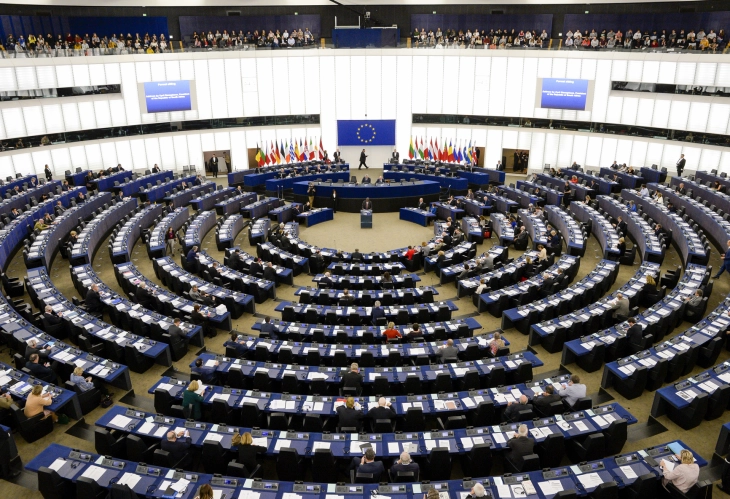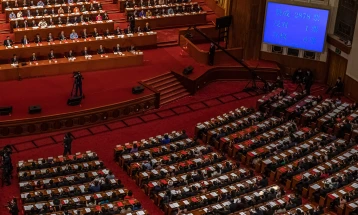European Parliament passes stricter EU migration and asylum rules
- The European Parliament passed stricter migration and asylum rules in the European Union on Wednesday, after years of internal dispute and against the backdrop of rising EU asylum applications.

Brussels, 10 April 2024 (dpa/MIA) - The European Parliament passed stricter migration and asylum rules in the European Union on Wednesday, after years of internal dispute and against the backdrop of rising EU asylum applications.
"It has been more than 10 years in the making," the EU legislature's President Roberta Metsola said on X, formerly Twitter. "But we kept our word."
At a press conference later, Metsola spoke of a package that is "fair with those eligible for protection, that is firm with those who are not, and that is strong against the traffickers and the networks preying on the most vulnerable of people."
A packed and febrile parliament sat in Brussels to pass the legislation package, with the outcome of the vote unknown up until the last moment.
Protesters disrupted the voting, throwing paper aeroplanes across the chamber and calling on EU legislators to reject the package with chants of "This pact kills, vote no!"
Overhauling the EU's migration regime has been the subject of intense work — and fierce debate — since 2015 when record numbers of migrants arrived in the EU.
A compulsory solidarity system is the basis of the legislation, requiring all EU member states to take some form of responsibility for managing asylum applications.
"All member states will be part of this solidarity effort, but they will choose how best to do it," European Commission President Ursula von der Leyen said in explanation of the new rules in a press conference.
If an EU country does not want to accept people applying for asylum, then that member state must give alternative assistance like financial contributions to a support fund.
Also, EU member states experiencing significant spikes in applications for asylum may call for the applicants to be distributed to other EU countries.
The most controversial part of the package involves establishing border facilities in the EU to host asylum seekers and screen and quickly send back applicants found not to be ineligible.
Until a decision is made on the asylum application, people will spend up to 12 weeks in reception centres on the EU's borders.
Applicants who come from a country with an asylum recognition rate in the EU of less than 20%, as well countries decided to be a public security risk, will be subject to such border checks.
According to the legislation, arrivals to the bloc will also be registered with fingerprints and photos to screen for threats to public security.
Non-governmental organizations (NGO) have criticized the package for undermining human rights and fear the border facilities will lay the ground for systematic detention.
The vote was made against the background of rising EU asylum applications. In 2023, applications reached a seven-year high at 1.14 million according to EU Agency for Asylum data.
The issue typically pits the EU's centre-right and and right-wing parties, who want stricter migration controls, against liberals, centre-left and left-wing parties, who want more legal routes to the bloc.
Metsola described the overhaul of the bloc's asylum and migration rules as a "balance between solidarity and responsibility."
The vote brings the rules one step closer to enforcement with final approval to come from EU ministers. Once signed off, EU member states will have two years to introduce the legislation into national law.
Photo: MIA archive







